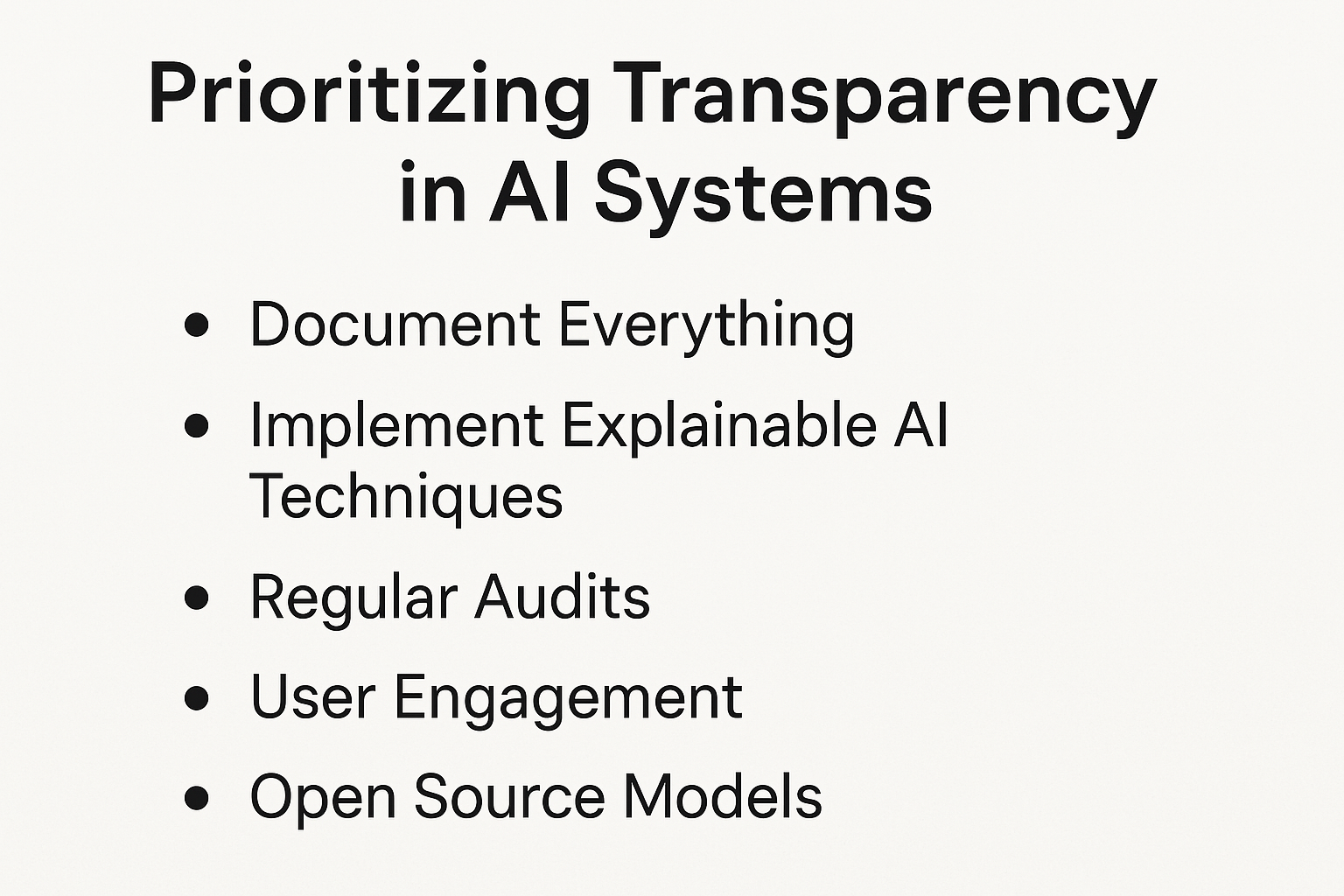Building Ethical AI with Python: How to Prioritize Transparency and Trust
 Lucy
Lucy
The importance of building ethical AI cannot be overstated. As artificial intelligence systems increasingly influence our daily lives, ensuring these technologies are developed responsibly is crucial.
This blog explores the intersection of ethical AI and Python development, emphasizing the need for transparency and trust in AI systems.
Understanding Ethical AI
Ethical AI refers to the principles and practices that guide the development and deployment of artificial intelligence technologies in a fair, accountable, and transparent manner. The core tenets of ethical AI include:
- Transparency: Users should understand how AI systems make decisions, which promotes trust and accountability.
- Fairness: AI systems must be designed to avoid bias and discrimination, ensuring equitable outcomes for all users.
- Accountability: Developers and organizations must take responsibility for the impacts of their AI systems on society.
As developers, particularly those using Python, we have a unique opportunity to integrate these ethical principles into our work. Python's simplicity and readability make it an ideal language for building ethical AI solutions that prioritize transparency.
The Role of Python in Ethical AI Development
Due to Python’s extensive libraries, frameworks, and community support, it has become one of the most popular programming languages for developing AI applications. Developers can use Python to create transparent, accountable AI systems that adhere to ethical standards.
Key Features of Python for Ethical AI
- Rich Libraries: Libraries like TensorFlow, PyTorch, and scikit-learn provide robust tools for building machine learning models while allowing developers to implement transparency measures easily.
- Frameworks for Explainability: Tools such as LIME (Local Interpretable Model-agnostic Explanations) and SHAP (SHapley Additive exPlanations) enable developers to make their models more interpretable, helping users understand how decisions are made.
- Community Support: The vibrant Python community is dedicated to sharing knowledge about best practices in ethical AI development, making it easier for developers to stay informed about the latest trends and techniques.
By utilizing these features, Python developers can ensure that their AI systems are effective and aligned with ethical principles.
Prioritizing Transparency in AI Systems
Transparency is a cornerstone of ethical AI. It involves making the inner workings of AI systems understandable to users. Here are some strategies for promoting transparency in your Python-based AI projects:
- Document Everything: Maintain thorough documentation of your algorithms, data sources, and decision-making processes. This enables stakeholders to understand how your system operates.
- Implement Explainable AI Techniques: Use explainable AI methods to clarify how your models arrive at specific decisions. This can help mitigate concerns about bias or unfairness in your algorithms.

- Regular Audits: Conduct regular audits of your AI systems to identify biases or ethical concerns. This proactive approach helps ensure compliance with ethical standards, and fosters trust among users.
- User Engagement: Involve users in the development process by seeking their feedback on how the AI system makes decisions. This engagement can help build trust and improve the overall user experience.
- Open Source Models: Consider making your models open source, allowing others to review and critique your work. This transparency can enhance credibility and foster collaboration within the developer community.
By adopting these practices, you can create a more transparent AI system that users can trust.
To effectively implement ethical principles in your projects, consider hiring dedicated Python developers specializing in ethical AI development. These professionals possess the expertise to build transparent systems prioritizing fairness and accountability.
The Business Benefits of Ethical AI Development
Investing in ethical AI development not only benefits society but also offers significant advantages for businesses:
- Enhanced Reputation: Companies that prioritize ethical practices build stronger reputations among consumers who value transparency and accountability.
- Regulatory Compliance: As regulations surrounding data privacy and algorithmic accountability tighten globally, adhering to ethical standards can help organizations avoid legal pitfalls.
- Increased User Trust: Transparent systems foster trust among users, leading to higher engagement rates and customer loyalty.
- Competitive Advantage: Organizations that embrace ethical principles can differentiate themselves from competitors who may overlook these important considerations.
By integrating ethical practices into your business strategy, you position yourself as a leader in responsible technology development.
Conclusion
Building ethical AI with Python requires a commitment to transparency, fairness, and accountability. By leveraging Python's capabilities alongside best practices in ethical development, you can create trustworthy AI systems that positively impact society. Furthermore, experts will empower your organization to navigate the complexities of ethical AI while ensuring compliance with emerging regulations.
As we continue to innovate in the field of artificial intelligence, let us prioritize ethics as a guiding principle in our work. By doing so, we can harness the power of technology responsibly and create a future where everyone benefits from advancements in AI.
Subscribe to my newsletter
Read articles from Lucy directly inside your inbox. Subscribe to the newsletter, and don't miss out.
Written by
